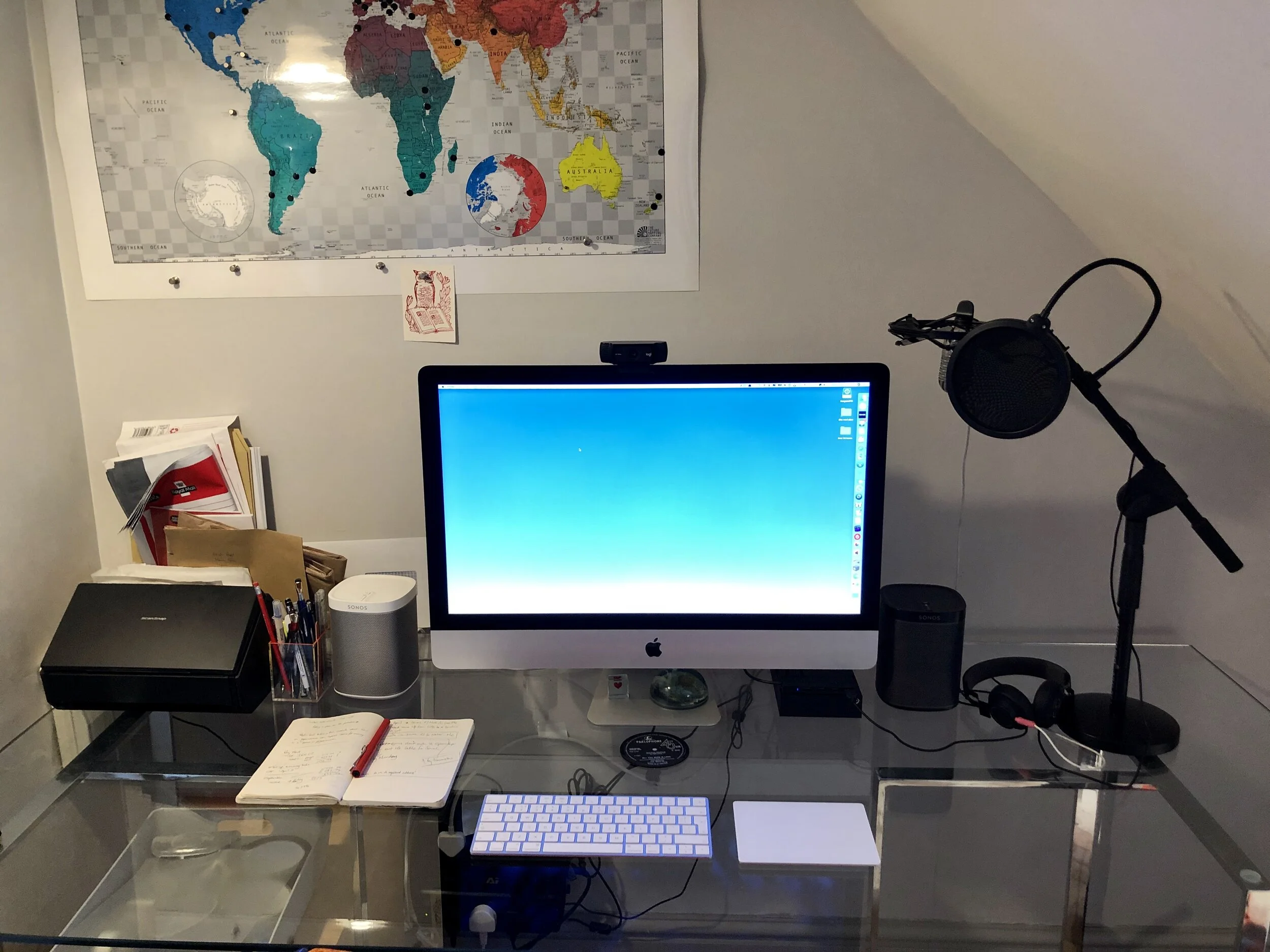Hello from the Peak District
It’s been a strange month for everyone. I hope you remain safe and well wherever you are in the world and I hope soon that we can return to a more normal amount of contact with our friends, families, colleagues and strangers.
What have I been doing in April?
I suppose I have not had to adjust my working routine as much as most people because I mostly work at home anyway. The 29th April was the 15th anniversary of my last day as working as an employee. Since then I have been an independent worker, based at home.
Things have been a little bit different from my routine because (a) my wife is currently working from home and (b) I have still needed to use Skype and Zoom to replace what would have been in-person meetings.
I have done a few days of consulting work but the bulk of my working time has been spent creating an online version of the public financial management course I taught in person in Dubai in February. This is a collaboration with my friends at Access Business Management Courses in Nairobi.
This course is different from the others I have written because it is predominantly a video course. There are some written elements and a 50 question test at the end but almost all of the 60-plus steps are created as screencasts I make here at my desk. I have discovered that a 10-minute screencast can take up to ten times as long to make. I will write about my workflow next month (but here is a glimpse of my desk after I tidied it).
I still have a few weeks of work to complete all of the steps in this course. Here’s a glimpse of one of the modules, where I explain why I think financial management is harder in the public sector than the private sector.
Managing Public Money online courses
The time spent on the course for ABMC means that nothing new has been published on Managing Public Money.
The Financial Modelling in the Public Sector course is still live. The 50% discount code is still valid. Enter the code FINMOD50 at checkout to get the course for half price.
Public financial management in the news
The news is still dominated by coverage of the Covid-19 pandemic. As I explained last month, for countries who borrow money only in their own currency it is not too much of a problem for governments to spend now as much as they need: the debts they accumulate are not a problem since they can print the money to redeem them.
Many poor and middle income countries are not in this position. They often will have debts in dollars or yuan or some other currency and they will need to acquire enough currency to repay the loans. It is helpful then that the G20 nations have agreed a plan to help some of the poorest countries.
If you are interested in how the Covid-19 crisis is affecting developing countries you could look at this blog post by Mark Miller of the Overseas Development Institute.
Away from the Covid-19 pandemic the International Budget Partnership published the results of their Open Budget Survey 2019. Basically the IBP take the view that governments with transparent budgeting practices leads to citizens getting better service. The IBP concludes that three quarters of the countries in the survey do not meet the minimum standards to foster an informed public debate about budgets. You can see a summary of the results here.
Keep in touch
You can keep in touch with me in many ways. First, of course, you can reply to this email. You can also follow me on Twitter, or connect with me on LinkedIn and FaceBook.
If you think this newsletter would be useful to a friend or colleague send them this link — https://managingpublicmoney.co.uk/signup — so they can sign up.
That’s it for this month.
Best wishes, Gary.

